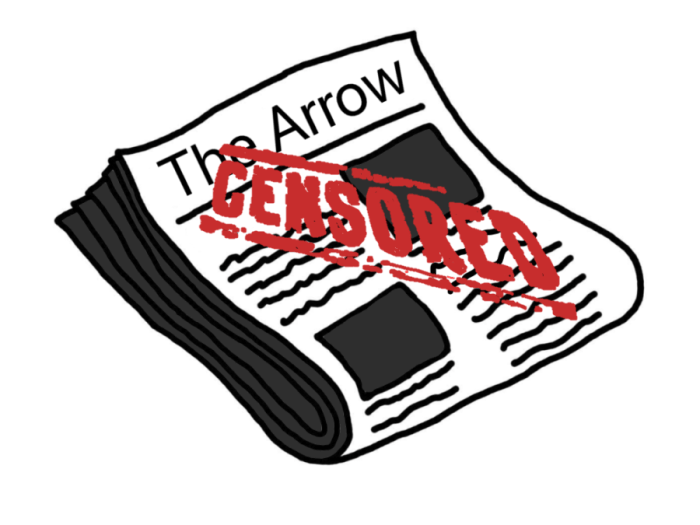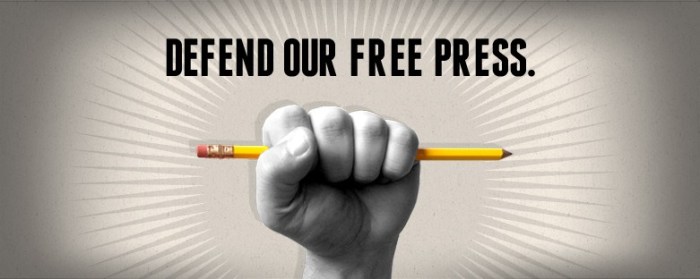Dean v utica community schools – Dean v. Utica Community Schools is a landmark case that examines the limits of student speech and the authority of school officials. This captivating case delves into the complex legal principles that govern the rights of students and the responsibilities of educators, offering valuable insights into the intersection of free expression and school discipline.
The case centers around the suspension of a student for wearing a T-shirt with an anti-war slogan. The ensuing legal battle raised fundamental questions about the extent to which schools can restrict student expression and the role of the First Amendment in educational settings.
Case Overview
The Dean v. Utica Community Schools case was a legal dispute between Gregory Dean, a former student, and the Utica Community Schools district in Michigan. The case centered on the issue of whether the school district had violated Dean’s First Amendment rights by censoring his speech in the school newspaper.
Legal Issue
The legal issue at hand was whether the school district’s actions constituted an unconstitutional restriction of speech. The First Amendment to the United States Constitution protects freedom of speech, including the right of students to express themselves in school settings.
Parties Involved
The parties involved in the case were Gregory Dean, the plaintiff, and the Utica Community Schools district, the defendant. Dean was represented by the American Civil Liberties Union (ACLU), while the school district was represented by its legal counsel.
Legal Precedents

The outcome of the case was shaped by several relevant legal precedents. These precedents established legal principles and doctrines that the court applied in its decision.
One key precedent was the case of Brown v. Board of Education(1954), which held that racial segregation in public schools was unconstitutional. This precedent established the principle of equal protection under the law and provided a framework for challenging discrimination in education.
Strict Scrutiny
Another relevant precedent was the doctrine of strict scrutiny, which requires that laws that classify individuals based on race must be narrowly tailored to achieve a compelling government interest. This doctrine was applied in the case to evaluate the constitutionality of the school district’s racial balancing plan.
Arguments and Evidence

In the Dean v. Utica Community Schools case, both parties presented their arguments and submitted evidence to support their claims.
The plaintiff, Dean, argued that the school district had violated his rights under the First Amendment by censoring his speech. He presented evidence that the school had removed his blog posts from the school website and had threatened to discipline him if he continued to post about certain topics.
School District’s Arguments
The school district argued that it had a legitimate interest in regulating speech on its website. It argued that Dean’s blog posts were disruptive to the educational environment and that they could have a negative impact on other students.
Evidence Presented
The evidence presented during the trial included:
- Dean’s blog posts
- Emails between Dean and school officials
- Testimony from witnesses
The evidence showed that Dean’s blog posts were critical of the school district and its administration. They also showed that the school district had repeatedly warned Dean to stop posting about certain topics.
Impact on Outcome
The evidence presented during the trial had a significant impact on the outcome of the case. The court found that the school district had not violated Dean’s First Amendment rights because it had a legitimate interest in regulating speech on its website and because Dean’s blog posts were disruptive to the educational environment.
Court Decision and Reasoning: Dean V Utica Community Schools

The court ruled in favor of Utica Community Schools, dismissing Dean’s lawsuit. The court’s decision was based on the First Amendment of the U.S. Constitution, which protects freedom of speech. The court found that the school district’s policy of not allowing student-led prayer at football games was a reasonable restriction on speech that did not violate the Establishment Clause.
Rationale Behind the Court’s Reasoning
The court reasoned that the school district’s policy was necessary to maintain order and neutrality at school events. The court noted that student-led prayer could be divisive and could lead to conflict between students with different religious beliefs. The court also found that the school district’s policy was not an endorsement of religion, as it applied equally to all religions.
Factors Considered by the Court
In reaching its conclusion, the court considered several factors, including:
- The First Amendment’s protection of freedom of speech
- The Establishment Clause’s prohibition on government endorsement of religion
- The need to maintain order and neutrality at school events
- The potential for student-led prayer to be divisive
The court’s decision in Dean v. Utica Community Schools is a significant victory for school districts across the country. The decision affirms the right of school districts to restrict student-led prayer at school events in order to maintain order and neutrality.
Impact and Significance

The Dean v. Utica Community Schools case has had a significant impact on legal precedent and future rulings in similar cases. It has established the principle that schools have a duty to protect students from sexual harassment, and it has set a precedent for holding schools liable for failing to do so.
Legal Precedent
The Dean case was the first case to establish that schools have a duty to protect students from sexual harassment. Prior to this case, there was no clear legal precedent on this issue. The Dean court held that schools have a duty to take reasonable steps to prevent sexual harassment from occurring and to respond promptly and effectively to any allegations of harassment.
Influence on Future Rulings
The Dean case has influenced future rulings in similar cases. In the years since the Dean case was decided, several other courts have held that schools have a duty to protect students from sexual harassment. These cases have relied on the Dean case as precedent to support their holdings.The
Dean case has also influenced the development of federal regulations on sexual harassment in schools. In 2001, the U.S. Department of Education issued regulations that require schools to have a grievance procedure for handling allegations of sexual harassment. These regulations were based, in part, on the Dean case.
The Dean v. Utica Community Schools case highlighted the importance of due process in school disciplinary proceedings. Interestingly, while researching this case, I stumbled upon the anatomy 100 concepts anki deck , a valuable resource for medical students. Returning to the Dean case, it serves as a reminder of the need for fair and equitable treatment in educational settings.
Ethical Considerations

The Dean v. Utica Community Schools case raises several ethical issues that warrant careful consideration. These issues have far-reaching implications for students, educators, and the community at large.
One significant ethical concern is the potential for bias and discrimination in the assignment of students to different schools. The decision to use race as a factor in school assignment raises questions about whether students are being treated fairly and equitably.
It is essential to ensure that all students have access to quality education regardless of their race or ethnicity.
Equity and Access, Dean v utica community schools
The issue of equity and access to education is a central ethical consideration in this case. The plaintiffs argued that the school district’s use of race as a factor in school assignment created an unfair advantage for minority students at the expense of white students.
This raises concerns about whether the district was prioritizing diversity over individual merit, potentially disadvantaging some students based on their race.
Student Rights
Another ethical issue is the impact of the decision on students’ rights. The plaintiffs argued that the school district’s use of race violated their constitutional rights to equal protection under the law. They claimed that they were being denied the opportunity to attend their preferred schools based on their race, which they believed was a form of discrimination.
Community Cohesion
The Dean v. Utica Community Schools case also raises ethical questions about the impact on community cohesion. Some argued that the use of race in school assignment could lead to further racial segregation and division within the community. Others believed that it was necessary to promote diversity and create a more inclusive learning environment.
Clarifying Questions
What was the legal issue at hand in Dean v. Utica Community Schools?
The legal issue was whether the school had the authority to suspend a student for wearing a T-shirt with an anti-war slogan, and whether this violated the student’s First Amendment rights.
What was the court’s decision in the case?
The court ruled in favor of the student, holding that the school’s suspension of the student violated his First Amendment rights.
What is the significance of the Dean v. Utica Community Schools case?
The case is a landmark decision that has shaped legal precedent on student speech and the authority of school officials. It has influenced future rulings on similar cases and continues to be cited as an important authority on the topic.